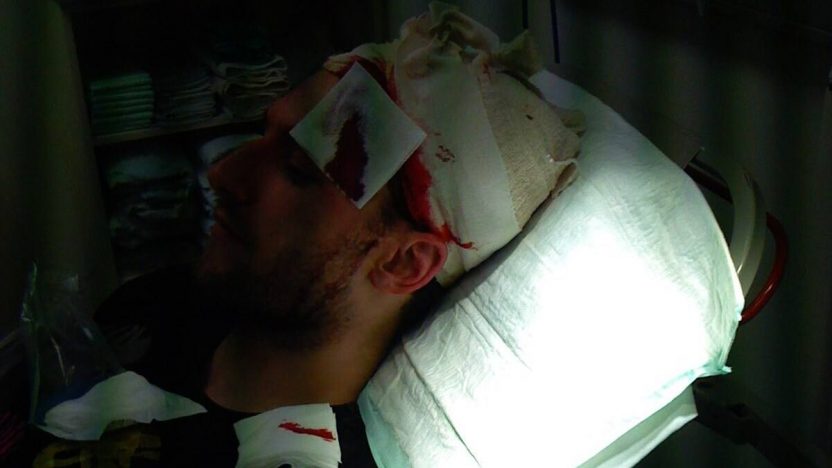The answer to this question is not clear-cut and largely depends on what caused the head injury, or traumatic brain injury (TBI), as head injuries are also referred to.
There are various causes for head injuries or TBI and these will be mentioned. However, as road accidents are said to be the cause in 50% of such cases reported, the article will focus specifically on these and the possibility of claiming for and receiving compensation for road accident-related injuries.
Around 89 000 new TBIs are reported in South Africa every year. A 2013 article in the South African Medical Journal (SAMJ) quotes Africa as having the second highest incidence of road traffic related injuries in the world, second only to South East Asia, who has the highest number of such deaths. The article goes further to say that a significant proportion – even the majority – of these deaths can be attributed to TBI, which presents more often in males than in females (4 males for every 1 female) and is estimated at 316 incidences per 100 000 South African residents annually. Worldwide, head injuries or TBI affect as many as 10 million people.
A head injury or traumatic brain injury (TBI) is an injury that is caused by anything that impacts the head with sufficient force to result in the brain moving in the skull. Injury to the brain resulting from this impact is believed to be irreversible. Typical injuries include a skull fracture, brain haemorrhage (bleeding) and concussion. Repeated bouts of head injury or concussion could lead to an increased risk of developing Alzheimer-like dementia, Parkinson’s disease as well as motor neuron disease.
It is estimated that in South Africa, head injuries account for 25.2% of non-natural deaths in children younger than 15 years old. An injury to the head is also the explanation most frequently reported for hospital admission of children under the age of 13 years.
The majority of TBI cases in South Africa is said to be caused by accidents or collisions involving motor vehicles, motorcycles and pedestrians (50% of cases), but falls (also associated with sporting accidents) (25%) and violence in the form of assaults (20%) also account for a fair share of TBIs in South Africa annually. Train accidents, medical malpractice and birth injuries can also cause head injuries. If a person suffers a head injury, the correct medical treatment in time is critical, even for minor injuries, as these too can affect quality of life (www.aalaw.co.za).
The signs and symptoms of a mild head injury usually disappear within a few days or weeks and the victim generally suffers no long-term effects. However, in the case of severe head trauma, which doesn’t always present immediately after the accident but only a few days later, a victim or patient’s health and personality are likely to be permanently affected. Against this background, it is critical that someone who has been injured in a road accident receive medical treatment after the accident, also to diagnose the extent of injuries.
The extent of long-lasting damage to brain function depends on the region of the brain that was injured. Often, victims or patients who have sustained a serious head injury in a road accident will need a lifetime of medical treatment and rehabilitation and will be unable to earn a living. In such cases, compensation can go a long way towards assisting these victims to lead and enjoy a good quality of life long after they sustained the injury. In the USA alone, 5.3 million people affected by TBI require life-long assistance with performing their daily activities, according to a 2013 article in The South African Journal of Psychiatry.
As head injuries are devastating in terms of the economic, social and personal impact they have, prevention is better than cure. Examples of prevention is wearing the correct protective helmet when practising sport and, when travelling in a motor vehicle, always wearing a seat belt. When children are transported, ensuring they are properly restrained in an age-appropriate car seat can contribute to less young children having to live with the trauma of TBI.
Proving negligence is the key to a successful RAF claim
If you have suffered physical injuries in a road accident as a result of a negligent driver, you can claim from the Road Accident Fund (RAF), a fund set up to compensate victims of road accidents for injuries sustained during and as a result of such an accident. In the case of a death relating to a road accident, the RAF will pay compensation to the deceased’s dependants for their loss. South Africans who can claim from the RAF are drivers, passengers, pedestrians, cyclists or motorcyclists or – in the case of death – a deceased’s dependants. The key word before considering claiming compensation from the RAF is negligence and it will have to be proved that the other party’s act or omission caused the damages you suffered.
There are lawyers specialising in claiming compensation on behalf of victims of road accidents that were injured as a result of negligence on the part of a driver. According to their websites, individuals can institute a claim for said injuries from the RAF directly, but dealing with the RAF is cumbersome and the settlement amount is likely to be much lower than what the claim is worth, they say. Time is a critical factor in RAF claims and if you are going to use a personal injury law practice to institute a claim on your behalf, it is best to involve them as early in the process in view of them collecting evidence of negligence, information about the damages you suffered as well as other relevant information they will need to document your case.
What to do if you are involved in a road accident
If you are involved in a road accident, report it within 24 hours to the Police station in whose area the accident happened together with the details indicated below. While this is a requirement for an insurance claim, it will also ensure that all information about the accident is recorded in the case of a possible RAF claim.
- The date, time and place of the accident
- Registration numbers of all vehicles involved in the accident (name, make and year of vehicle models might also be required)
- Full names and contact details of the drivers of the above vehicles
- Full names and contact details of any (potential) witnesses
- For an insurance claim, collect all other information as required by your insurance company, including drivers’ license numbers and vehicle license numbers
- Consult your doctor or go to your local hospital for a thorough medical examination (some injuries take time to present so this is a critical step)
- Contact a personal injury lawyer as soon as possible
Also according to the websites of many of the well-known personal injury lawyers, some of whose TV advertisements can be seen regularly, they are committed to seek the maximum compensation that is relevant for your particular case and will pursue such a fair settlement aggressively, even if they have to go to court to obtain a judgement against the negligent party. Some of these practices have a short questionnaire of about five questions on their website. Filling in this questionnaire will give you an indication of whether you have a possible claim or not. Many of the personal injury lawyers will only charge fees in the case of a successful claim. However, when you engage with a personal injury lawyer about a possible claim, ensure you discuss fees upfront.
In 2014, personal injury lawyers successfully claimed millions from the RAF on behalf of South African road users who sought their advice and intervention after sustaining head injuries in a road accident as a result of negligence. Road users who fall into the category described above, who might have a legitimate case to claim compensation from the RAF to recover medical and hospital expenses, loss of income as well as general damages for pain and suffering and loss of quality of life may want to use a personal injury lawyer to obtain maximum compensation. It is, however, important to note (and personal injury lawyers also point that out when quoting successful claims for the above) that case results are dependent on a variety of factors that are unique to each case. Against this background, (previous) case results do not guarantee or predict a similar result or outcome in any future case.
Examples of successful claims for compensation from the RAF include
- More than R4 million awarded in September this year for a 1-year old child who suffered severe injuries in an MVA
- More than R1.6 million awarded for a head injury and fractured multiple facial bones (among other injuries)
- R903,235.00 successfully claimed from the RAF for a patient who was bleeding from his mouth when he sustained a head injury and bruises on his face (among other injuries)
- More than R4.5 million awarded in the North Gauteng High Court in November this year to a 12-year old boy after a road accident left him permanently disfigured and severely injured. He suffered a severe brain injury and had multiple bone fractures
- R4 million awarded for a head injury with disfiguring facial scarring of a young female
- R2.734 295.12 awarded for a head injury
- R5 million awarded for a head injury and multiple facial fractures
A case that received a lot of media attention because of its high-profile is that of Thomas Ferreira. In 2011, 18-year old Thomas Ferreira sustained a Traumatic Brain Injury (TBI) when ’blue light driver’ Joseph Semitje (former driver for the then Gauteng MEC of Housing, Humphrey Mmemezi) knocked him off his motorcycle. In December 2013, Semitje was found guilty of reckless or negligent driving. The court was told that at the time of the accident, Semitje was driving on the left side of the yellow line; he had not switched on the vehicle’s siren and had gone through a red traffic light.
A psychiatrist told the Krugersdorp Magistrate’s Court in November this year that Thomas, who was in a coma for several weeks following the accident, will not be able to function independently or live on his own. He will require life-long supervision and care. In April 2012, it was said that Thomas’ medical costs only already amounted to around R1 million. In June 2012 it was reported that an interim payout of R870 000 had been made by the RAF to cover Thomas’ hospital account; no ongoing expenses had been paid.
Footing the bill for a head injury or Traumatic Brain Injury (TBI) can amount to millions when negligence is proved. If negligence is proved, justice is perceived to be served when the negligent party is ordered – often by a court of law – to pay compensation for medical costs incurred and other losses suffered. However, compensation can do just what it suggests – it can compensate a victim for losses suffered – it can never give the victim back the quality of life that he or she led as a normal person before the accident. As such, prevention is better than cure – especially for head injuries.
References:
http://www.aalaw.co.za
http://www.justice.gov.za
http://www.accidentclaim.co.za
http://www.news24.com
NAIDOO, Dinesh. Traumatic brain injury: The South African landscape. South African Medical Journal, [S.l.], v. 103, n. 9, p. 613-614, aug. 2013. ISSN 2078-5135. Available at: <http://www.samj.org.za/index.php/samj/article/view/7325>. Date accessed: 25 Nov. 2014. doi:10.7196/samj.7325.
PRETORIUS, Chrisma; BROODRYK, Mandi. Misconceptions about traumatic brain injuries among South African university students. South African Journal of Psychiatry, [S.l.], v. 19, n. 3, p. 75-79, aug. 2013. ISSN 2078-6786. Available at: <http://www.sajp.org.za/index.php/sajp/article/view/436>. Date accessed: 25 Nov. 2014. doi:10.7196/sajp.436.




